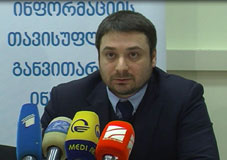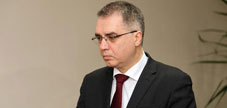
IDFI questions qualifications of ministers’ advisors
By Tatia Megeneishvili
Thursday, April 2
The Institute for the Development of Freedom of Information (IDFI) survey reads that ministry advisors in most cases have no defined functions and are underqualified.
General Director at IDFI Giorgi Kldiashvili said that the survey conducted on state bodies showed that there is no clear standard that would have defined functions and responsibilities of ministers’ advisors.
“In many cases we read that the post of an advisor is occupied. However, their duties are not definitively specified,” stated Kldiashvili.
“Their functions are very general. For example, Minister of Culture and Monuments Protection of Georgia has three advisors and they all have the same function. They actively participate in events, provide new initiatives, and attend various events organized by the ministry,”Kldiashvili said.
According to the IDFI, the advisors’ incomes also very. For instance, the Defense Ministry adviser receives 2, 500 GEL, the European and Euro-Atlantic Integration Minister’s advisor receives 2, 500 GEL, while the Aviation Agency Advisor’s salary is 4, 000 GEL.
The survey was also interested in the qualifications of the advisors.
IDFI Chairman of the Board Levan Avalishvili stated that Minister of Environment and Natural Resources Protection of Georgia Elguja Khokrishvili appointed three advisors in July of 2014. According to Avalishvili, the individuals previously served in the Ministry of Regional Development and Infrastructure, while Khokrishvili was a minister.
“The advisors’ ages range between 23 and 24, and they have already been appointed in the post twice in different state bodies,” stated Avalishvili.
According to him, in many cases there are signs of nepotism.
Minister of Health, Labour and Social Affairs of Georgia Davit Sergeenko, responded to the survey and said that he has only two advisors.
“I had five advisors, but now I have only two and their main functions are property management issues, legal issues and international relations, as well as corporate security issues,” Sergeenko stated.
The survey was based on the information obtained from 95 public institutions. It covered the period from September to November 2014.


